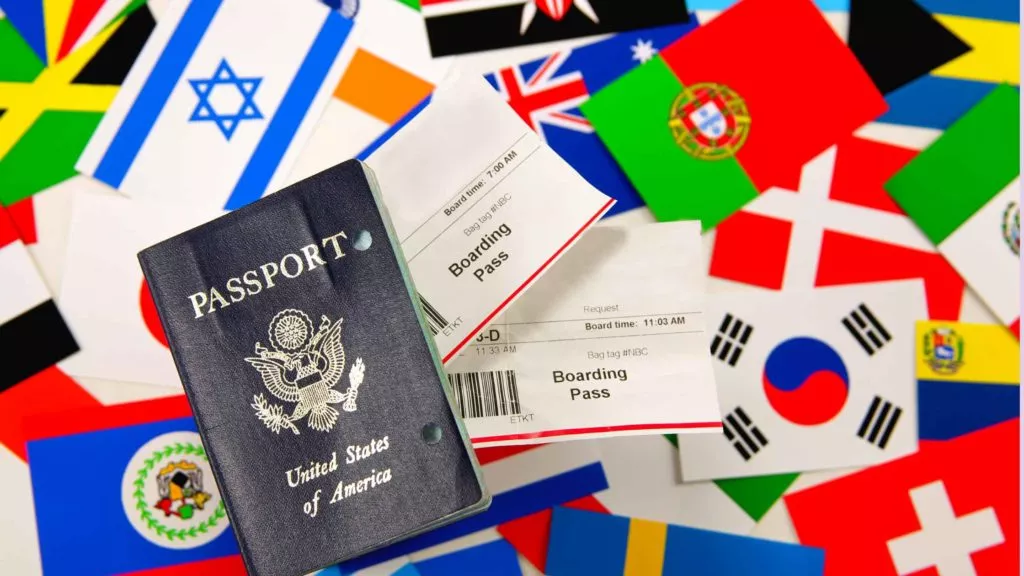
10% of a company’s total expenses are allocated to business travel which is why many companies are continuously on the hunt for a seasoned business travel manager. Given the expense’s significance, businesses want someone to optimize it.
So if you’re a travel freak or this job fascinates you, you can master the art of travel management and facilitate businesses. All you need to know is what skills the position requires and how to hone them. Or, if you’re a company looking to hire a travel manager, this article informs you what skills to look for in potential candidates.
Travel management requires one to be a jack of all trades. One needs to have technology skills, the art of negotiation, sound communication, and much more to excel at this role. This article explains six must-have skills to succeed in travel management. So, let’s get right into it and learn what it requires to bring the best travel manager out of you:

1. Technology skills
Internet, automation, and globalization among many other factors have altered the travel and tourism landscape.
Where, a few decades ago, you needed to book and manage flights, accommodation, and meals separately for your business trips, today’s technology has brought incredible solutions that automate and streamline designing comprehensive travel plans.
While some solutions are specialized to accommodation or flights separately, some offer a comprehensive travel management platform where the whole trip can be planned, managed, and booked right from the time you leave your office and embark on the journey.
These solutions save the cost, time, and hassle associated with traveling. So you, as a business travel manager, need to be well-versed with some of the best travel management platforms. It’d require you to be tech-savvy and informed about contemporary technology.
Some platforms you need to be well-versed with
- Altovita: this platform streamlines corporate accommodation bookings. It offers real-time accommodation availability and an efficient booking process, saving you valuable time.
- Zoho Expense: it automates your business travel expense reporting, helping you gain control over your travel spending ultimately.
- Itilite: when it comes to business travel compliance, it guarantees adherence to guidelines, provides a personalized booking experience and automates the whole process.
2. Organizational skills
Imagine your colleague who has just landed at their destination after a long, tiring flight and they’re looking for the vehicle outside the airport that’ll take them to their hotel.
They contact you to know why the vehicle’s not there, and you tell them to wait because the vehicle is booked for the next hour. Imagine the frustrated them; you don’t want that, right? It is an organizing error that you must abstain from.
Designing a comprehensive travel plan or trip is a complex task. It includes:
- Booking flights at the right times and prices
- Booking accommodations at the right times and prices
- Booking other transport at the right times and prices
- Scheduling the events of their days, and much more
If you fail to do so, you ruin the overall travel experience of your colleagues and may incur extra costs to your company. That’s why you need to hone your organizational skills. They help you design the trips effectively and efficiently, saving the company's resources and enhancing travelers’ experiences.
Tips to hone organizational skills
- Prioritize tasks
- Declutter and organize
- Use calendars and reminders
- Break tasks into manageable chunks
- Set and stick to deadlines
3. Education or training
On average, a single job receives 118 applications. If all the applicants are evaluated rigorously, it becomes costly and a long process for businesses who have to hire just one or a few candidates for the vacant position(s). That’s why, they generally set specific criteria to screen the applications in the initial step. If one doesn’t meet it, they don't qualify for the next step in evaluation.
These initial eligibility criteria often include specific education or training, work experience, age limit, and much more. For the position of business travel manager, employers often require the applicant to have education or training in marketing, tourism, travel, hospitality, or similar programs.
Though some employers don’t set this education criterion, it’d be a plus point to have a formal education for the role. It’d give you an edge during the interview as you’ll be knowing more technicalities associated with the job than those who don’t have specialized education in travel management.
Education and training that give you an edge
- Bachelor’s degree in a related field such as hospitality management, tourism, business administration, or marketing
- Relevant certifications from organizations such as the Global Business Travel Association (GBTA)
- Other training in areas such as travel industry regulations or booking systems
4. Communication skills
Travel management requires you to continuously communicate with stakeholders. The primary stakeholders include your superiors, employees who are traveling, and the finance department. You’ve to be in the loop between all of them.
The superiors make travel policies that you must understand and ensure their compliance. Keeping these policies in view, you must communicate the restrictions and compliance to the employees. To enhance their experience, you must remain in contact with them before, during, and after their travel. It’ll give you insights into their likes, dislikes, and preferences which are helpful to improve their satisfaction in the future.
The finance department lets you know the budget allocated for overall business travel; you must not exceed it. Provide employees with the best possible, policy-compliant travel in the given budget; it’ll keep all the stakeholders happy.
It all comes down to good communication. If you are not a good communicator, you’ll find it hard to carry all the necessities together.
Tips to hone communication skills
- Practice active listening
- Practice empathy
- Pay attention to nonverbal cues and body language
- Give and receive feedback
- Practice public speaking
- Ask questions for clarity
- Read more to continuously learn and improve your communication skills

5. Negotiation skills
To optimize travel costs, you must negotiate and close the best deals with your travel vendors and suppliers. It’s what makes you stand out as a travel manager. To do so, you must know the art of negotiation. You need it both externally (outside the company) and internally (within the company).
Externally, you negotiate to secure the best deals and discounts from your travel partners, suppliers, and vendors. Internally, you negotiate to bring employees and the business to agreements.
Agency conflict exists in companies. It is defined as a party expected to act in the other party’s best interests, which is naturally contradictory and illogical. Businesses seek to maximize their profits; hence, they’d naturally want to spend less on perquisites provided to the employees. Employees, conversely, want maximum perquisites disregarding the business’s want to maximize profit.
To solve this conflict to some extent and help the two parties come to a common ground in the domain of business travel, the travel manager must have mastered the art of negotiation.
Tips to hone negotiation skills
- Listen first, speak later
- Research and know your goals
- Seek win-win solutions
- Stay calm and professional
- Be flexible and open-minded
- Practice assertive yet respectful communication
6. Teamwork
You’ve to be a people person to excel at a business travel manager role. As previously mentioned, you’ve to continuously deal with the primary stakeholders—your superiors, travelers, the finance department, and more.
To meet your employer’s expectation of travel expense and process optimization, you’ve to continuously gather the stakeholders’ insights.
The nature of these insights is dynamic, so you’ll have to meet and talk with them before, during, and after every business trip. This will give you useful insights to incorporate in future operations, leading to the stakeholders’ delight ultimately.
Moreover, certain uncertainties happen during business trips, so you must be mindful of them and work as a team with key stakeholders to resolve them.
For instance, if a sudden change of plan occurs, your role requires you to coordinate with the concerned people to design a new plan.
Sometimes, the initial flight can be canceled or delayed due to unforeseen circumstances, costing annual $1.3 billion to American business travelers and leading to a renewal of the complete plan. So you’ve to work as a team with key stakeholders to renew the trip or reach the best alternatives.
Tips to hone teamwork skill
- Communicate openly and trustfully
- Collaborate and leverage strengths
- Set clear goals and vision
- Embrace new ideas and growth
- Resolve conflicts constructively
- Provide and receive feedback and support
Unlocking success in travel management
Acquiring essential skills is paramount to achieving success in business travel management. ] This article explored six skills necessary to thrive in this dynamic field. From technology skills to negotiation skills and teamwork, each skill plays a vital role in making business travel arrangements.
The article also mentioned some tips to hone the required skills. By honing them, travel managers can enhance their abilities and surpass their employers’ expectations.


